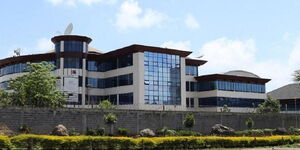Individuals who engage in graft in the private sector have been put on the government's radar.
Following a new directive, the government, through the Attorney General Paul Kihara, formulated new guidelines to fight corruption within the private sector. This will see Chief Executive Officers (CEOs) mandated to set up anti-graft procedures in their organizations.
Failure to adhere to these guidelines will see the executives fined Ksh1 million or a jail term of 10 years or both.
“An entity or its directors, senior officer or other responsible person shall be liable, on conviction, to a fine not exceeding one million shillings or imprisonment for a term not exceeding 10 years, or to both,” Kihara stated.
CEOs will now be required to set up an internal code of conduct for battling bribery and graft. The code should be documented and should clearly map out corruption risks and ways to fight the vice.
Private firms will also be expected to hire a senior executive who will oversee the anti-corruption campaign agenda. In addition, they will be expected to fund the official with a budget.
The companies will be mandated to show evidence of internal channels as well as the state of confidentiality in reporting and handling of perpetrators.
“Any person who demotes, admonishes, dismisses from employment, transfers to unfavourable working areas or otherwise harasses and intimidates a whistle-blower, informant or witness will commit an offence,” read part of the statement.
In the guidelines by the government, business executives will be required to report any case of bribery to the Ethics and Anti-Corruption Commission (EACC) within a day of its occurrence.
According to the commission, 70 percent of all corruption in the country relates to procurement. The State is shifting focus to the private sector in the two-pronged approach that targets both the bribe givers and receivers who collude to rip off the public.
The guidelines are in line with anti-bribery law of 2016 that was drafted by the private sector.












